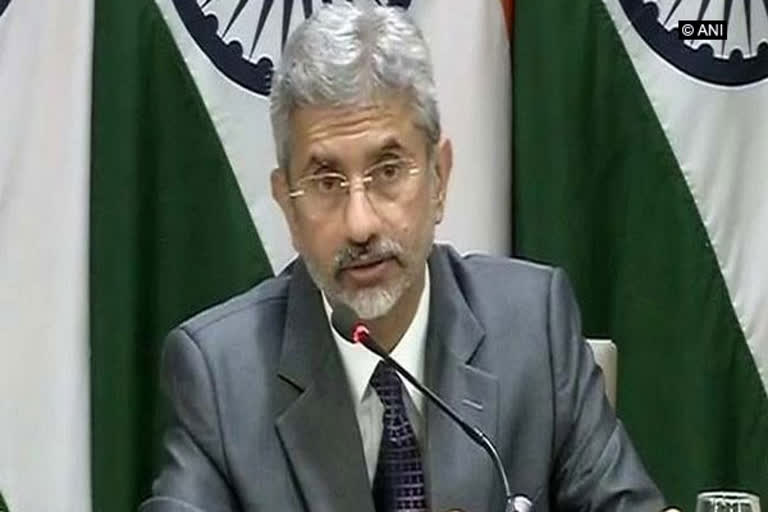New York: External Affairs Minister S Jaishankar on Wednesday outlined that before modification of Article 370 Jammu and Kashmir was in a mess while adding that the restrictions were imposed in the region to prevent loss of lives following the stripping of special status.
He said that the Indian government's first concern was to ensure that there was no loss of lives due to violence and demonstrations in the region post modification of Article 370.
"We had the experience of 2016 when a self-advertised terrorist cult figure called Burhan Wani was killed and after that, there was a spike in violence. Our intention was to manage the situation (post Article 370) without loss of life and restrictions were intended to do that," he said.
"As many as 42,000 people were killed in the last 30 years. Level of intimidation had reached a height where senior police officers were lynched on streets of Srinagar. Journalists who wrote against separatism were assassinated, military personnel returning home for Eid were kidnapped and killed. So, Pre August 5 Kashmir was in a mess. Difficulties in Kashmir did not start on August 5. It is supposed to be a way of dealing with those difficulties," the minister underlined.
Jaishankar said that the situation in the region has now stabilised and lots of restrictions have been rolled back including the operationalising of landlines and mobile towers and resumption of economic activity.
"Particular efforts are being made to keep the supplies normal in the state. This is a harvest season for apples. Efforts are being made to procure apples so that farmers do not get victimised by these changes," he said.
He explained how Jammu and Kashmir acceded to India after the country gained freedom in 1947 and the drafting of Article 370.
"The situation in Jammu and Kashmir was peculiar for a number of reasons as it was a border state but also they were themselves under attack at that time. They had the desire to extend the period of alignment with the rest of India in terms of the application of laws. The Constituent Assembly recognised that it was a special case at that time," he said in an interactive session with Frank G. Wisner, a former US ambassador to India.
